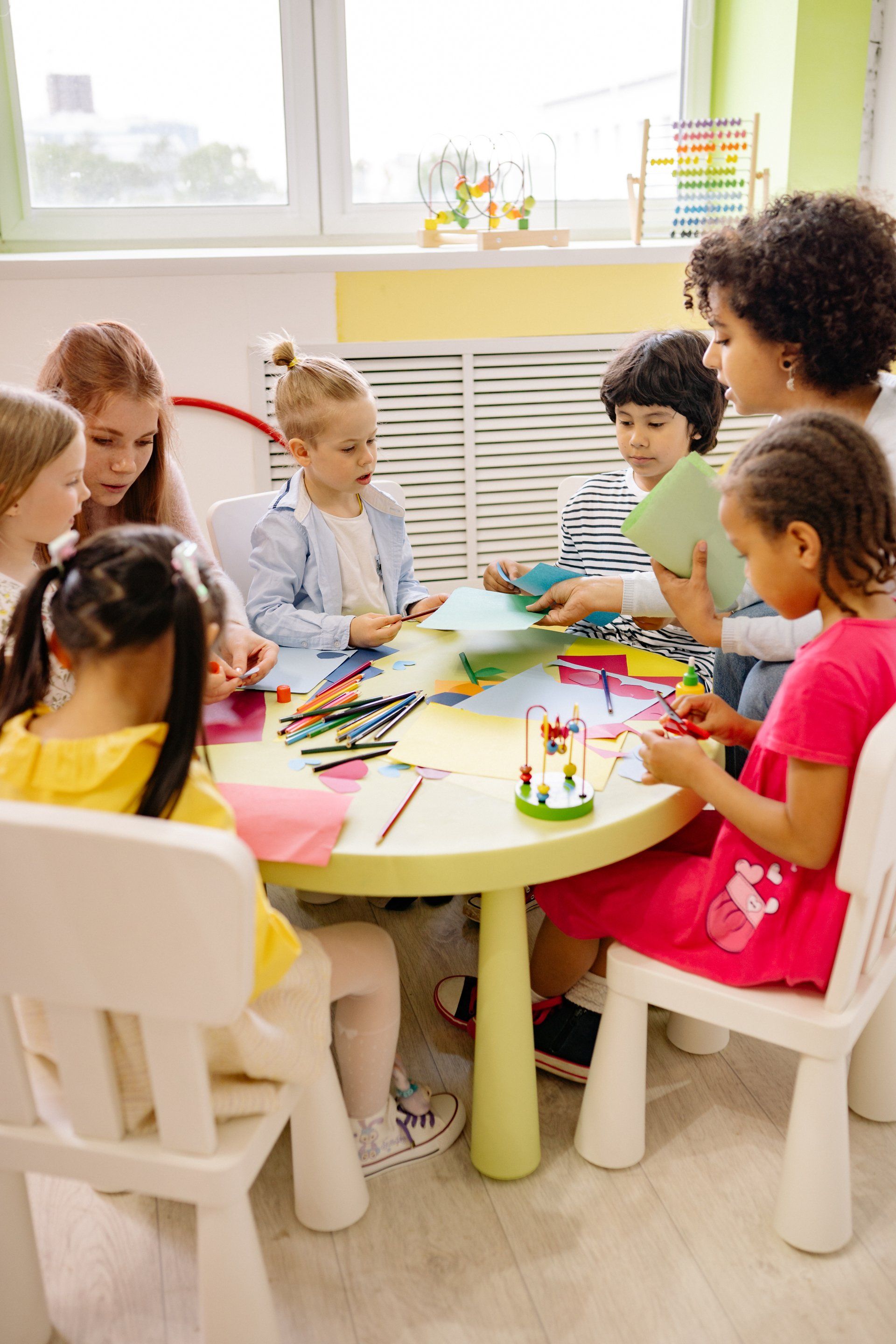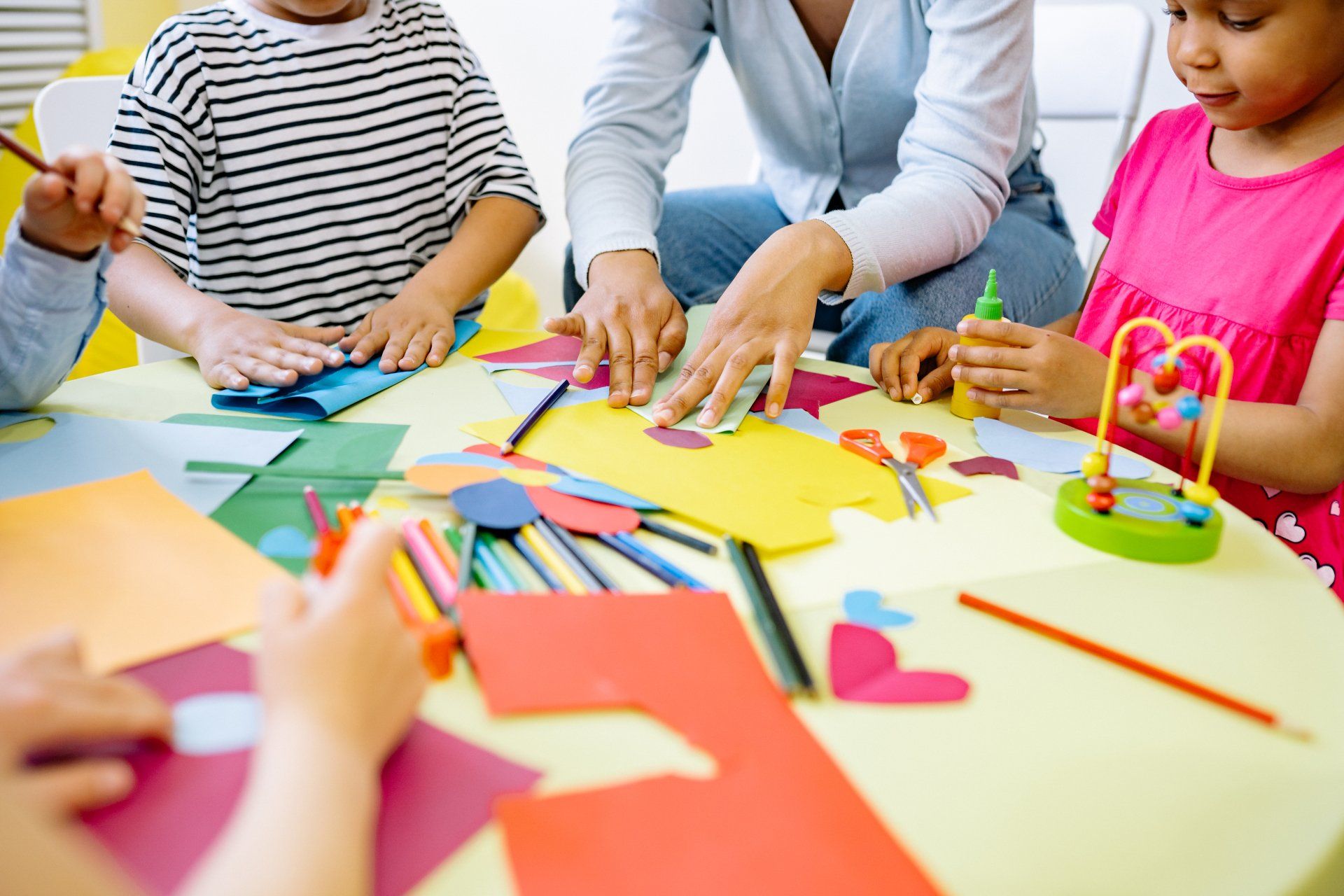We are excited to offer our Playful Connections play therapy groups, designed for neurodivergent children, ages 3-12. “Neurodivergence” or difference in brain functioning, includes diagnoses and conditions such as autism, ADHD, learning disabilities, and sensory processing issues. We use play therapy because kids are much more likely to “play out” and “play through” their challenges than to “talk out” or “talk through” them, the way adults might. Play therapy uses the unique and age-specific benefits of play to nurture kids’ self-expression, self-acceptance, and self-confidence. And group play therapy adds the special opportunities for growth and learning that come from social interaction within a safe, therapeutic space. Group play therapy can be a helpful intervention with children—including neurodivergent children—for many issues including emotion regulation, social skills, impulse control, trauma, grief, anxiety, and depression.
What is group play therapy?
For kids, play is serious business. It’s one of the main ways they learn, grow, and express
themselves. The same could be said about peer social interaction, which can help kids develop a sense of belonging and self-worth, along with key life skills. What makes group play therapy
uniquely impactful is that it brings these two elements together.
Play therapy is a treatment method that uses the special benefits of play—known as the
“therapeutic powers of play”—to meet children at their own level and help them work through
social, emotional, and developmental challenges. Group play therapy applies this idea with
groups of children, combining the therapeutic powers of play with the special benefits of a
group setting. In group play therapy, kids can realize that other kids have similar or related
challenges—meaning they are not alone. Group play therapy also gives kids opportunities to
work on social skills and development in an environment where it’s okay—and actually
encouraged!—to make mistakes and try again.
What does “neurodivergent” mean?
Neurodivergent means having some form of “brain difference” that causes a person to function
differently from what is considered “typical.” This difference might show up in one or more
areas, such as learning, thinking, emotions, sensory processing, and social interaction. Some
conditions or diagnoses included under “neurodivergence” are autism, ADHD, learning
disabilities, and sensory processing issues.
In our play groups, we use a neurodiversity perspective. This means that we view
neurodivergence as a valuable and important part of who a child is, rather than as an illness or
deficiency. While neurodivergence can bring challenges and needs, it can also bring unique
strengths and gifts.
How can group play therapy benefit neurodivergent kids?
Here are some of the ways group play therapy can help kids:
- Developing greater self-worth
- Learning new ways to express and manage feelings
- Understanding themselves better
- Regulating impulse control
- Developing greater empathy
- Improving social skills
- Attaining a sense of belonging
Each of these areas can be challenging for neurodivergent kids. We use the AutPlay® Therapy play groups protocol as our framework to ensure that our play therapy groups are welcoming and affirming for neurodivergent kids. In each group session, the therapist allows the kids in the group to choose how they wish to play, offering a variety of materials. The therapist provides a safe and accepting space for the kids to express themselves and interact, as well as “playing along” in ways that build on and develop the children’s own choices, preferences, and skills. We also have parents participate frequently in the play sessions, in order to develop their skills at connecting with and supporting their kids through play. Our framework also includes social gatherings for the parents and kids outside of therapy, so that kids in our groups have added opportunities to work on positive peer connections.
Group play therapy offers unique benefits for children’s social-emotional development. Providing this form of therapy requires specialized education, training, and experience. That background and knowledge helps us create a deeply enriching experience for your child.
If you’re interested in learning more about our play therapy groups and how they can help your child flourish, contact us today for a free 15-minute consultation.






